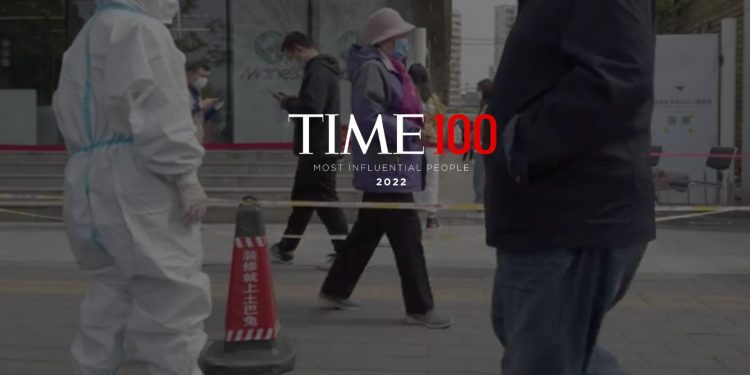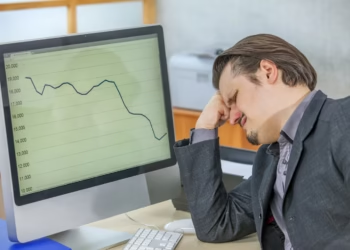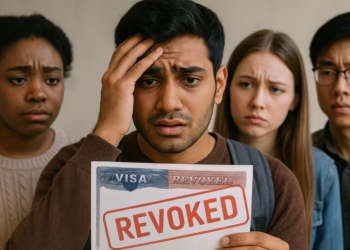Adani has been selected in the Titan category and Nundy and Parvez have been selected under the leaders’ category.
TIME magazine a Newyork based media outlet has announced its famous list of 100 most influential people for the year. The list has six categories – Icons, Pioneers, Titans, Artists, Leaders and Innovators.
This year the list includes famous personalities across the globe like US President Joe Biden, Ukraine President Volodymyr Zelenskyy, Russian President Vladimir Putin, Chinese President Xi Jinping, President of the European Commission Ursula von der Leyen, tennis icon Rafael Nadal, Apple CEO Tim Cook and media mogul Oprah Winfrey.
India has three names listed in different categories. Supreme Court lawyer Karuna Nundy, business tycoon Gautam Adani and prominent Kashmiri human rights activist Khurram Parvez have been named among the world’s 100 most influential people of 2022 by TIME magazine. While Adani has been identified as an influential personality in the category of Titans along with personalities like Tim Cook, Nundy and Parvez have been identified in the leaders’ category.
Gautam Adani
Gautam Shantilal Adani is a billionaire and owner of a multinational conglomerate responsible for building ports and other major developmental projects in India. His profile in the magazine says, “Adani’s once regional business now spans airports, private ports, solar and thermal power, and consumer goods. Adani Group is now a national behemoth in the world’s sixth-largest economy, though Adani stays out of the public eye, quietly building his empire.”
“Adani… competes with Warren Buffett to be the world’s fifth-richest person. With Prime Minister Narendra Modi’s stated goal of making India a $5 trillion economy by 2025, Adani’s journey may have only just begun,” the magazine elaborated.
Adani’s growth as a successful business tycoon in the last few years has been dissected by several experts in India. He is a first-generation entrepreneur who has managed to expand his wealth and become one of the richest names in Asia and the world.
Karuna Nundy
Karuna Nundy, an advocate at the Supreme Court of India and international human rights lawyer. She is a vocal figure and represents and acts as a legal policy adviser to governments, United Nations, companies and civil society movements.
Nundy’s pro bono practice includes the Supreme Court litigation from the 1984 gas disaster, known as the Bhopal gas tragedy. She has argued cases involving the rights of alleged terrorists, mentally ill people and class actions on sexual harassment. She drafted contributions to the new “anti-rape” laws and the Right to Food Act.
Karuna has an Economics degree from St. Stephen’s College, Delhi University, a law degree from the University of Cambridge, and did her LL.M. from Columbia Law School. She is qualified to practice in India and Newyork.
The magazine said that Nundy is not just a lawyer but also a public activist who ably—and bravely—uses her voice both inside and outside the courtroom to bring about change. She is a “champion of women’s rights” who has advocated for the reform of antirape laws and fought cases relating to sexual harassment in the workplace.
Her most recent litigation challenged the rape laws that exempted marital rape in India.
Khurram Parvez
Parvez is a Kashmiri rights activist who serves as the chairperson of the Philippines-based Asian Federation Against Involuntary Disappearances (AFAD), was arrested by the National Investigation Agency (NIA) in November last year. He is currently in jail. He was arrested under the Unlawful Activities (Prevention) Act, (UAPA). Parvez has been one of the prominent personalities from the valley and has been a vocal critic of the ruling Bharatiya Janata Party. He was previously arrested under another draconian law in 2016.
The profile for Khurram Parvez was written by renowned journalist Rana Ayyub. She said that Parvez’s voice ‘had to be silenced’ as his voice resounded around the globe for his fight against human rights violations in the Jammu and Kashmir region.
She writes, “The attacks against him speak volumes of the truth he represents at a time when the world’s largest democracy is being called out for its persecution of the more than 200 million Indian Muslims.”










